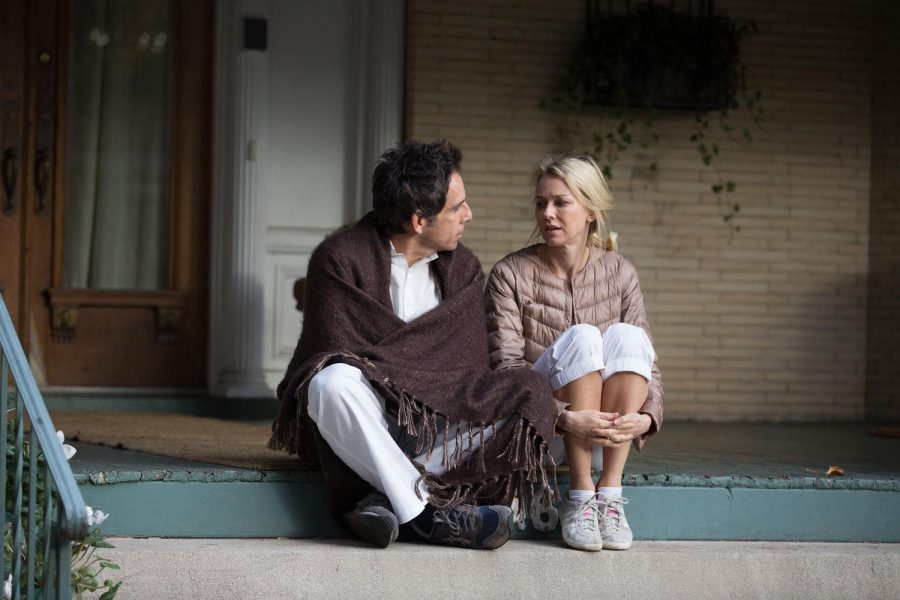Baumbach’s “While We’re Young” an earnestly human comedy
April 13, 2015
While We’re Young
Directed by: Noah Baumbach
Starring: Ben Stiller, Naomi Watts, Adam Driver, Amanda Seyfried
Rated R for language
Grade: A-
Youth is wasted on the old — or so Noah Baumbach’s new film, “While We’re Young,” seems to argue.
“While We’re Young” delivers insight on generational conflict to concepts of objective truth and originality. But Baumbach hints at something bigger: a desire to enjoy life, even in mundane circumstances or elder years.
Though Baumbach doesn’t reach the understated delights of his previous film “Frances Ha,” his latest is his most assured. He has refined his skills since taking the directing scene in 2006 with his shrewdly raw third film “The Squid and the Whale.” His latest work is precisely edited and unfailingly funny. “While We’re Young”is loaded with a fresh bag of dynamic dialogue and honest ruminations on modern American life.
Our finely detailed lead characters are two couples — husband Josh (Ben Stiller) and wife Cornelia (Naomi Watts) become good friends with married partners Jamie (Adam Driver) and Darby (Amanda Seyfried), who are both nearly 20 years younger. Josh and Jamie connect based on their careers as independent documentarians — Josh has been working on the same piece for a decade, and Jamie is looking to enter into the field.
Though Josh is initially invigorated by the optimistic youth, he becomes suspicious of Jamie’s intentions after agreeing to help the younger documentarian with his first project. Late into a career of making serious, “boring” documentaries, Josh is running in place, while Jamie is just getting started with lively, freewheeling projects. As the duo build a relationship, Jamie too easily becomes affiliated with Josh’s father-in-law and famed filmmaker Leslie Breitbart (Charles Grodin).
The plot of “While We’re Young” is much thornier than that of Baumbach’s earlier works. But that doesn’t get in the way of his reflections on the reality of modern-day life, which flawlessly depict hipster culture, social etiquette and the spontaneity and rhythm of natural conversation. He makes the mundane both whimsical and unsentimental. Like the better moments of Woody Allen’s work, Baumbach disguises a tactful and intellectual piece of social commentary as a bright indie comedy — without jeopardizing brains or laughter.
The cast of familiars helps the film as well — Stiller and Watts are reliable actors worthy of Baumbach’s realistically flawed characters. Stiller and Watts are game to act their way unconventional situations, such as a hallucinogenic ayahuasca ceremony, an uncomfortable hip-hop dance classes and a “street beach” party. Baumbach not only puts Driver’s charms to good use, but by the end of the character’s arc, the themes of “While We’re Young” challenge the sincerity of the goofy cool-guy persona he so frequently embodies in films like “Frances Ha.” Even Seyfried is in top form, sporting comedy chops and a rare glimpse at the charisma that’s usually buried in her many inferior roles.
“While We’re Young” channels the border between the cinematic and the naturalistic. Its writing brims with spot-on witticisms, delectable exchanges and conversational explorations of existential truths and questions. And despite the temptation to infuse the film with obvious metahumor with its filmmakers-as-characters premise, Baumbach manages to be knowing without being smug, opting for sophistication instead of condescension.
This earnest humanism bubbles beneath the plot of “While We’re Young,” as in many other Baumbach works. “While We’re Young” is both vibrant and wise, modern and mature — simply business-as-usual for its gifted creator.



